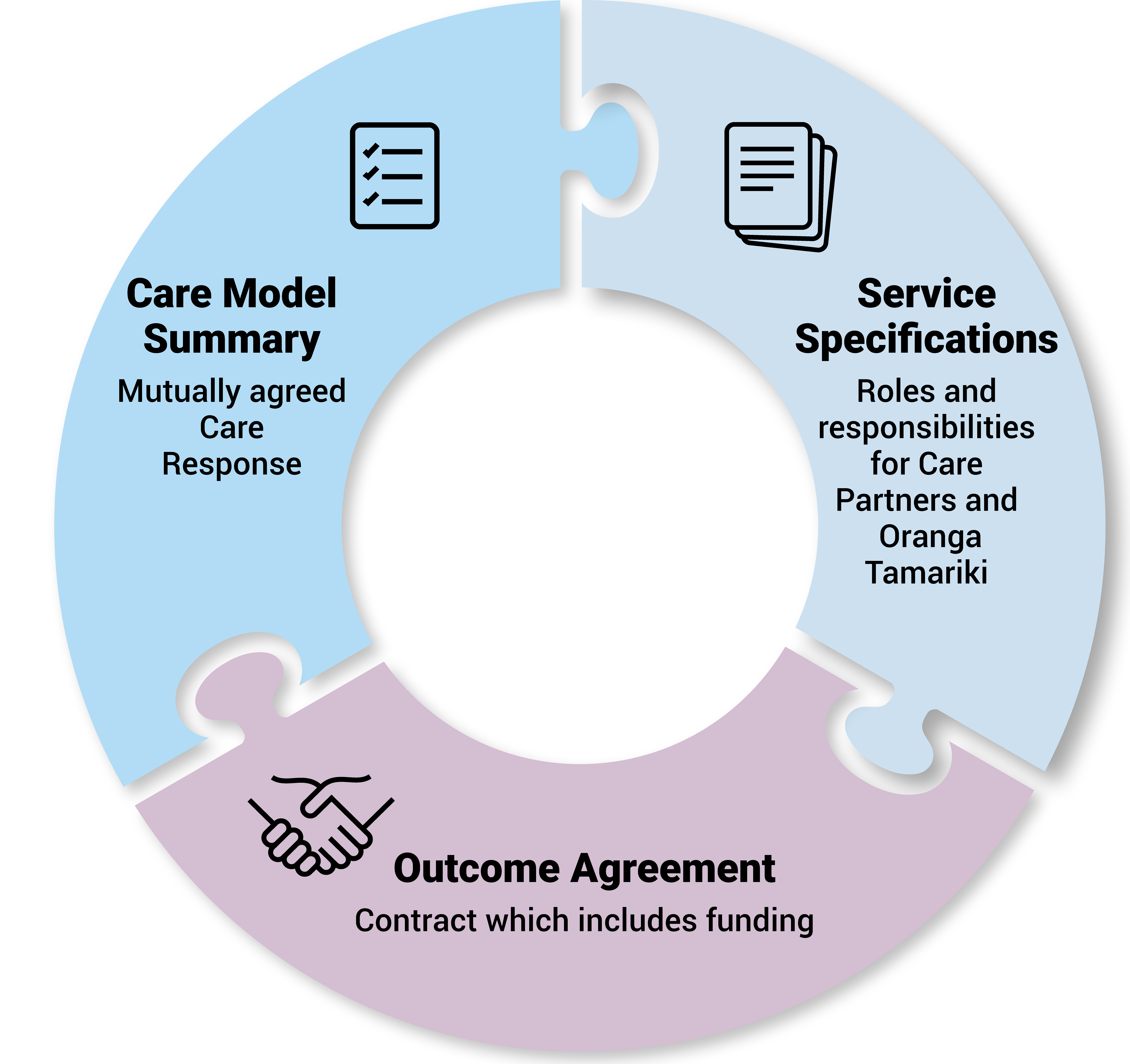Service Specifications and Care Model Summary
Our ways of working together with care partners focus on improved practice, partnerships, and outcomes. The service specifications and Care Model Summary documents are child-centric and aligned to this vision.

Child-centric agreements give us a clear, shared understanding of partners' care models, our respective roles and responsibilities, and how we work together in partnership.
The service specifications and Care Model Summary directly acknowledge the importance of care partners and Oranga Tamariki working together as genuine partners, pooling our mātauranga and expertise to best meet the needs of tamariki and whānau.
Purpose of the documents
Service Specification
We want to enable flexibility for care partners and Oranga Tamariki to focus on responding to the needs of a tamaiti or rangatahi, strengths, and aspirations. The service specifications outline what our respective roles, responsibilities and requirements are, but do not specify how these are to be carried out.
The Shared Care Service Specification used from 1 Hurae 2021 has replaced these specifications:
- Alcohol and Other Drugs Residential Programme (YJ)
- Bespoke Care
- Residential component of Supervision with Activity (YJ)
- Shared Care
- Shared Care with Detention Provision (YJ)
- Teaching Family Model in NZ
- Treatment Foster Care Oregon
- Youth Service Strategy
- Wraparound intensive individualised support service (where exclusively used for children or tamariki in care).
Care Model Summary
The Care Model Summary template confirms details about the care response that care partners are providing. It is individual to each model of care provided by each organisation and forms part of the Outcome Agreement (along with the service specifications).
Published: October 31, 2023

